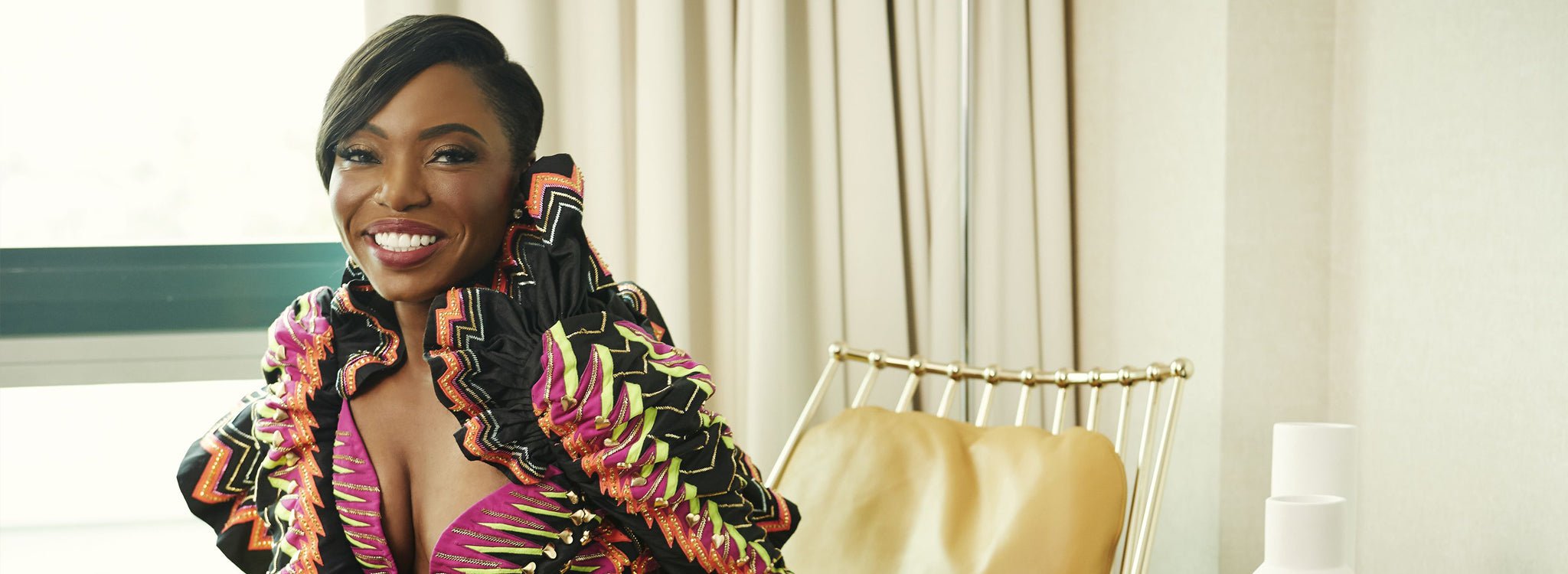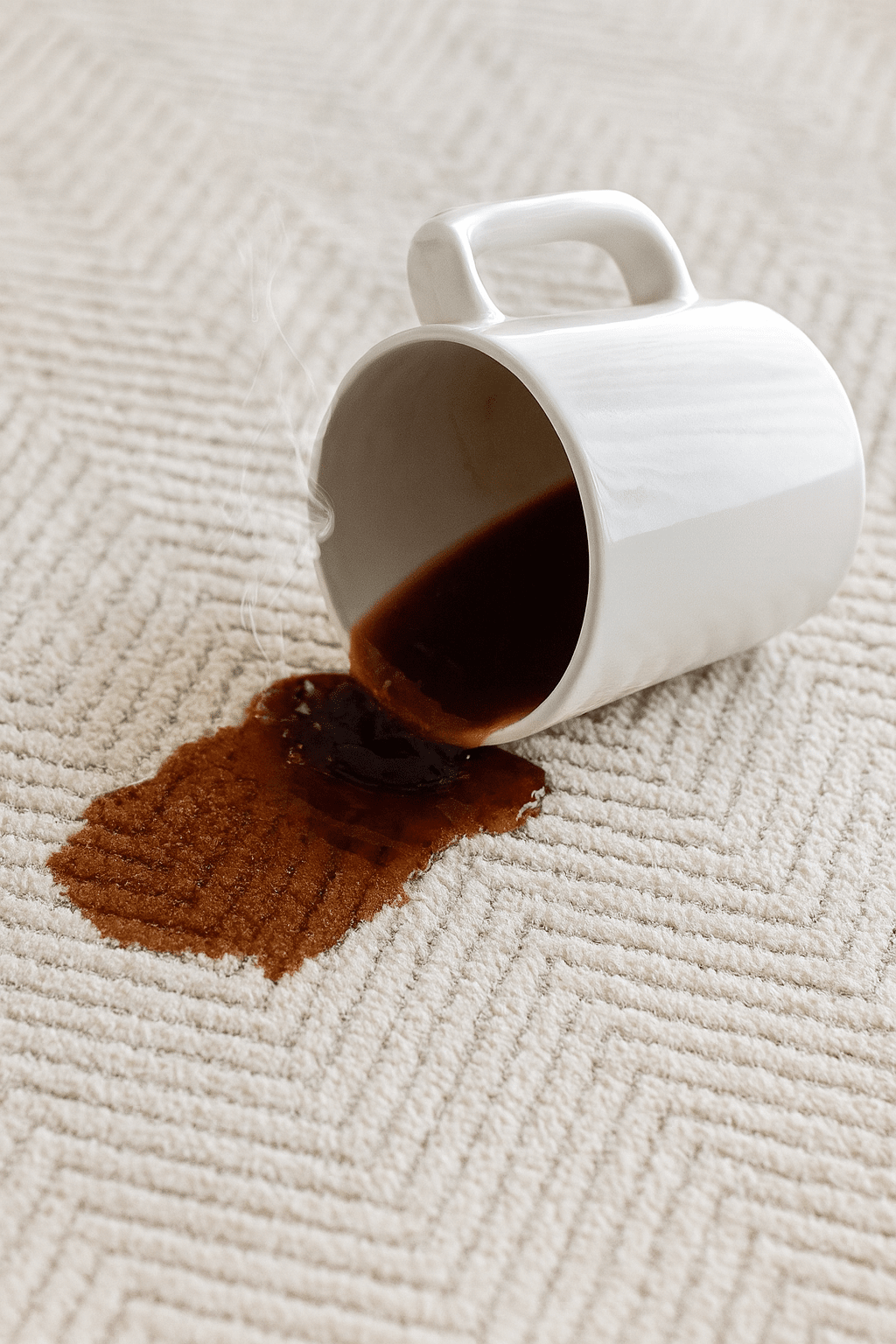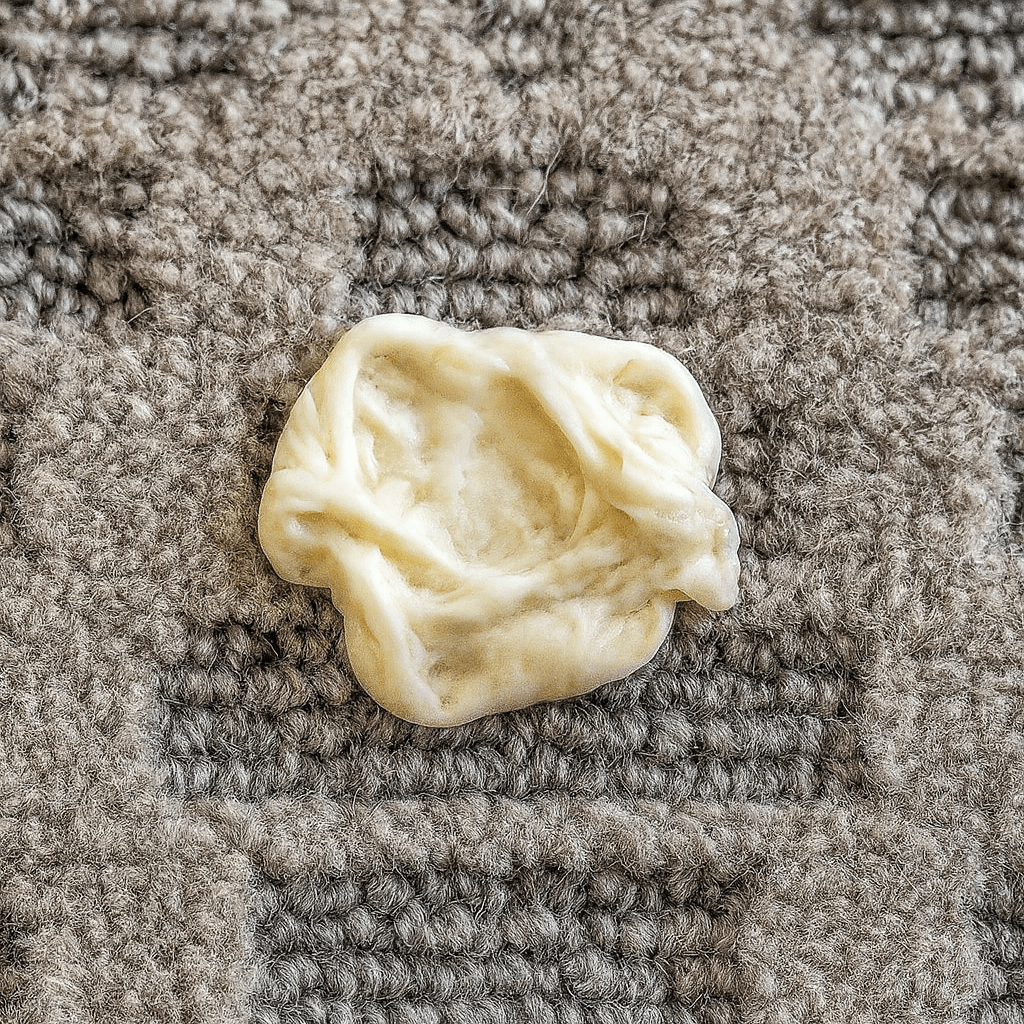Hop on the rug with us — and get to know how UOMA Beauty founder Sharon Chuter lives life well.
The passion Sharon Chuter has for her mission to bring about social change through make-up and beauty can’t be held back by the time it takes to put sentences together. Hers run into each other, fast, with vigor and strong conviction. She speaks a mile-a-minute, her enthusiasm for life and for work all contained within her breathless speech. Sharing her zest with those around her is just one way Chuter has become a leading force for change in the beauty industry, and the world at large.
When she was just 15 years old, Chuter fell into the career that would become her life’s calling. Growing up in Nigeria, she was in need of a job and, having done away with grand aims of becoming an engineer (she didn’t want to get her hands too dirty) and a singer (she knew she was no Beyoncé), Chuter looked to another passion she had: make-up. “I couldn’t understand why we didn’t have any beauty brands in Nigeria,” she says, over Zoom from Los Angeles, where she lives.
The lack of beauty brands present in her home country prompted Chuter’s proactive young self to reach out to every brand she could think of to try to rectify the situation. Most of them ignored her. Except for Revlon. She started working with the brand to establish its presence in Nigeria, and eventually sold the distribution contract she had with them so she could go and learn more.
Chuter left Nigeria to pursue a corporate career that took her around the world, assuming various roles at multinational beauty businesses, including area operations manager at L’Oréal, and head of operations for Benefit Cosmetics. Along the way, she found herself more and more frustrated with the lack of true representation in the industry. So, a decade later, she set up her own company, UOMA, which means ‘beautiful’ in Igbo.
Reconnecting to her roots
In 2019, inspired by her Nigerian heritage, Chuter established UOMA as an inclusive beauty brand that would celebrate culture — not just hers, but multiple ones. “Culture is important because culture is nature, culture is who we are,” she says. “Culture is history, culture is heritage. Culture is lineage, right? And so you cannot be proud of yourself until you reconcile yourself with your identity, which is your heritage and culture. That's why we use our platform to celebrate culture, whatever culture it is, whether it's African culture, Native American culture, Latina culture, whatever culture that we go into.”
The first UOMA range debuted at Ulta stores with 51 shades of foundation available in six custom formulas. Chutes sees the brand as more than just beauty. “We call ourselves cultural curators. Because for me, there is something really powerful when you own your culture,” she says. She herself went through the journey of reclaiming her culture, after having first tried to erase her Nigerian heritage when she landed in America. “I dropped everything Nigerian about me, my accent, my name, everything. I wanted to leave that behind. Because when you're in the West, it's sort of made to look as a thing of shame, right?”
It worked and she felt like she fitted in. But Chuter was miserable; she’d lost sight of who she was. It was right around this time she decided to pursue UOMA, and also re-discover all the things that made her who she was: her love of Nigerian food, wearing braids and speaking her home language. “The amount of joy it brought me,” she says. It gave her the confidence to pursue UOMA, which in June this year, became available in over 3300 Walmart stores nationally.
Beauty in the beholder
“That's what makes the world beautiful. The fact that we’re all so different,” Chuter says. “I go diving, and the reason you risk your life to go under the water is for the beauty; that everywhere you look, the fish are different. If I was under the water, and all the fish looked the same and acted the same, why the hell would I risk my life to go there that day?” she chuckles. “That's the beauty of humanity, the fact that we're different, the cultural identities. The real test of humanity is our ability to embrace and live with diversity, and understand that is our strength and not a weakness. And that's the dots we're trying to help people connect together.”
Chuter tries to connect the dots on a larger scale too. In 2020, she started the #PullUpForChange grassroots campaign, challenging beauty brands to disclose the number of Black employees on their payroll. She’s someone who, when she sees injustice, can’t sit by silently. It all goes back to the core of what she believes in: a world where everyone is uplifted and celebrated for who they are and what they add to this colorful life we’re living. And if she can play her part, through make-up and speaking up, she’ll do so.
“One of the most profound things I’ve ever been told was by my sister when I was seven,” she says. “She told me to embrace being different. When I was younger, I struggled with it, because I was a person who had opinions and ideas and in Nigeria, that wasn’t welcomed. I told my sister, ‘I want to be like you so bad, I just want to be you. How can I be like you?’ And she said, ‘You don't need to be me. Be yourself, love yourself. Because somewhere out there, there is somebody wanting to be you so bad.’ From that day, I've never tried to be anybody else. What she said to me, that was such a gift.” It’s a gift Chuter, herself, has been trying to share with the rest of the world ever since.
Images courtesy of Sharon Chuter and UOMA Beauty.






Share:
How Petrushka Bazin Larsen spreads joy through ice cream, art and community.
How Misha Tyutyunik uses his art to tell stories that matter.